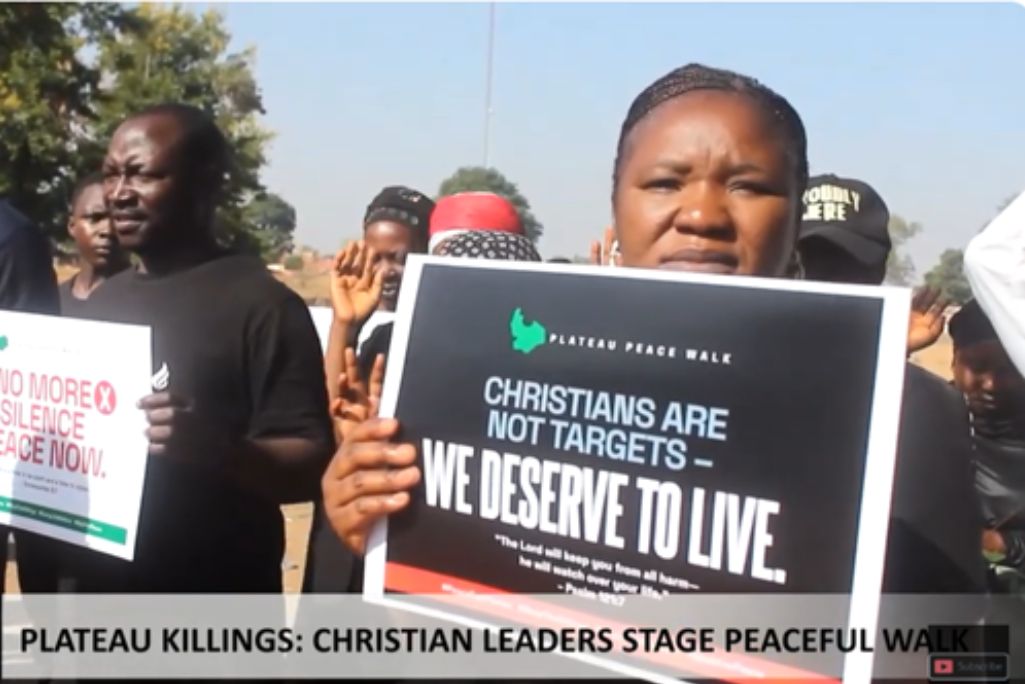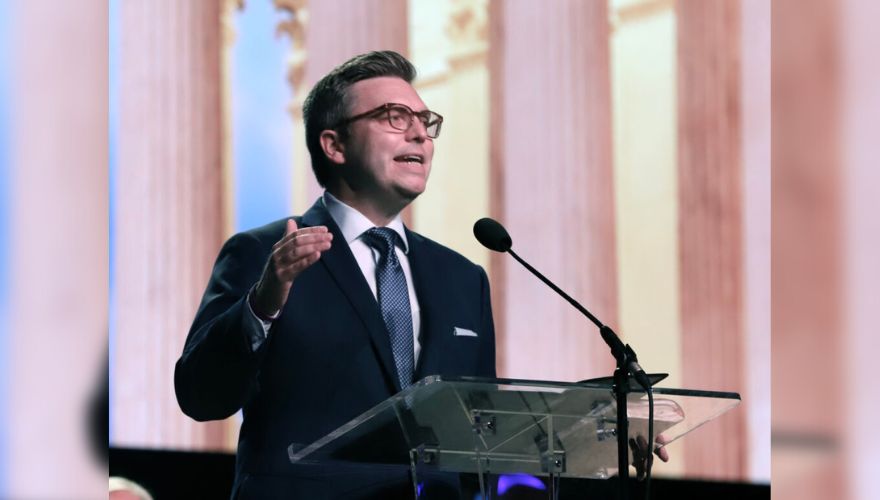
PLATEAU STATE, Nigeria (BP) — More than 240 Christians were massacred in attacks on villages in Plateau and Benue states during Lent and Easter, some as they worshiped, news agencies and religious liberty advocates reported.
In the latest attacks, suspected Fulani militants killed at least 72 Christians in villages in Ukum and Logo counties in Benue on April 18-20, International Christian Concern (ICC) reported on April 22. Thousands fled, added to the many displaced in the region, and the death toll may rise as authorities search the surrounding forests, ICC said.
Perhaps the deadliest weekend was Palm Sunday. Initial reports, from ICC, Christian Daily International-Morning Star News and others, were of a pre-dawn attack of more than an hour on Zikke village following Palm Sunday service, killing between 51 and 54 Christians, with a death toll potentially rising.
In its latest report, ICC said the Palm Sunday massacre extended beyond Zikke village to include attacks on several villages simultaneously, with a death toll of at least 100. Christians were targeted while worshiping, ICC said, whole communities were razed and many were forced to flee.
Matthew Hassan Kukah, a bishop in Sokoto, described the Zikke attack to the Catholic Herald as “another tributary of blood” that will “link up with older tributaries and continue their flow slowly but surely into an invisible ocean of blood that now threatens to swallow the Plateau.”
The killings followed the slaughter of more than 60 Christians April 2-3 in seven communities in Bokkos County in Plateau, Christian Daily International-Morning Star News reported, when militant Fulani also displaced more than 1,000 residents and destroyed and looted food stores.
The ongoing violence has spurred renewed declarations of genocide, accusations of governmental complacency and indifference, and speculations of Boko Haram’s revival as religious leaders conduct mass burials and citizens mourn and march in protest.
Ishaku Matthew Kure, a Baptist pastor who lost 10 members of his congregation in the Zikke attack, called the violence “genocide,” ICC reported.
Plateau Gov. Caleb Manasseh Mutfwang also described the killings as genocide in a televised interview with Arise News, after the Bokkos County attacks.
“I would say it unapologetically, what happened in the last two weeks in Bokkos is genocide – I say it unreservedly,” Mutfwang said, according to a recap of the interview by Christian Daily International-Morning Star News. “No one has given me any reason to believe that what happened was politically motivated, and if there is any such suggestion I’ll be glad to receive the evidence of such, because these were unprovoked attacks on innocent people, vulnerable people.”
One pastor, Charles Musa, told Christian Daily International-Morning Star News the area has been under attack for more than a year, and the government has been ineffective in protecting farmers.
“Bokkos Local Government as a whole and part of Mangu Local Governments have been under siege for about one and a half years,” Musa said. “The Plateau state government has put in so much but insufficient efforts to curb the menace. However, the federal government of Nigeria seems to have abandoned the people to their fates.”
Attacks against Christians have escalated in Nigeria’s Middle Belt and nationwide. Nigerian Catholic clergy Remigius Ihyula and Wilfred Anagbe testified of the violence before the U.S. House Foreign Affairs Committee in March, specifically the killing and forceful displacement of Christian farmers in Benue. The two also described a campaign of Islamization in the country.
While Nigeria is the deadliest nation in the world for Christians to live, with Open Doors reporting 3,100 Christians killed in Nigeria in 2024 (69% of those killed globally), the U.S. State Department does not designate Nigeria as a Country of Particular Concern for committing egregious religious liberty violations.
In other attacks on Christians in Nigeria in April, three were killed April 5 in Otukpo County, Benue, and in Plateau, four were killed on April 6-7, three members of a family were killed on April 11 in Zogu Village, Bassa County; two were killed on April 8 in the Miango District of Bassa County; and one was killed in Zashi on April 9, according to reports.
The Southern Baptist Ethics and Religious Liberty Commission (ERLC), which has advocated for the State Department to return Nigeria to the list of CPCs, honored Nigerian Christians with the ERLC’s 2024 John Leland Religious Liberty Award at the ERLC spring trustee meeting.
Awarded to a person or a group that has been “a courageous champion of religious liberty both in the United States and around the world,” the honor was given to Nigerian Christians were selected because of their strong faith in God in the midst of extreme persecution in their country, ERLC said.
Open Doors, ranking Nigeria as the 7th most dangerous country for Christians in its 2025 world Watch List when considering a variety of factors in addition to killings, listed attacks by radicalized Islamic ethnic Fulani militia as a main driver of violence there. Fulani militants attack farming communities heavily populated by Christians, killing many hundreds, Open Doors reported, adding to attacks elsewhere in Nigeria by Jihadist groups such as Boko Haram and Islamic State in West Africa Province, among others.
Fulani are predominantly Muslim and comprise numerous clans totaling millions in Nigeria and across the Sahel, but most do not hold extremist views.
The 3,100 Christians killed there in 2024 is down from 4,118 the previous year.
(EDITOR’S NOTE — Diana Chandler is Baptist Press’ senior writer.)


